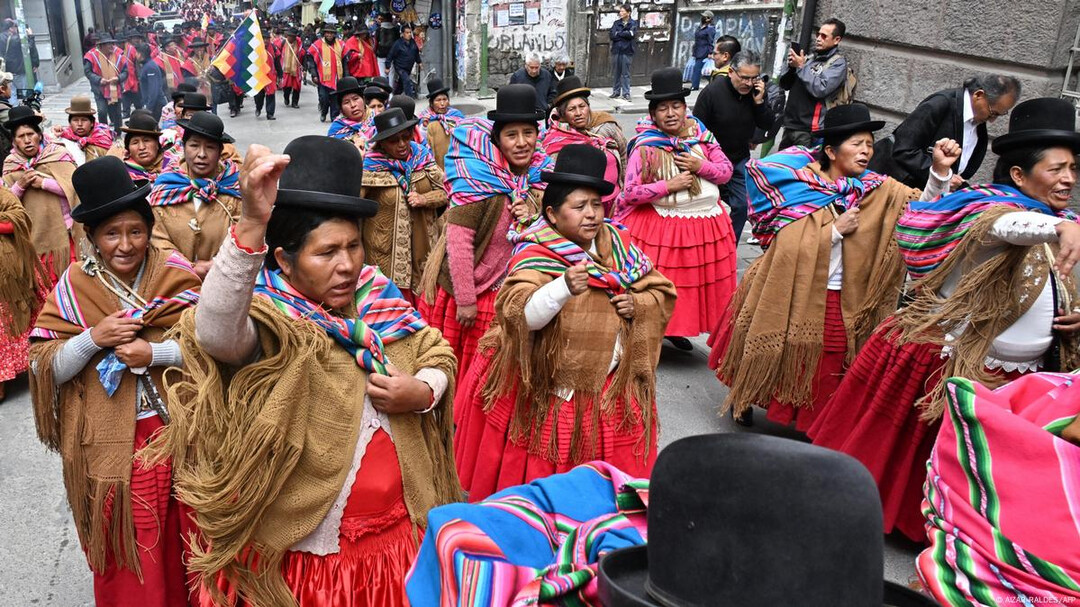
Thousands of Bolivians took to the streets in La Paz and El Alto this Wednesday, staging massive protests against the country's critical shortage of dollars and fuel. The demonstrations, led by indigenous groups and transportation workers, paralyzed major thoroughfares and highlighted the growing economic strain on the nation.
Two distinct groups, one consisting of indigenous people dressed in traditional attire and the other made up of frustrated drivers, marched for hours from El Alto to the government seat in La Paz. The indigenous protesters, clad in red ponchos and black hats, surrounded the Plaza de Armas, where the presidential palace is located, clashing with riot police who had blocked access.
The protesters' grievances centered on the soaring cost of living, with indigenous leader Leonardo Quispe telling AFP that the price of essential goods was "very high." Government figures indicate that year-on-year inflation reached 12.03% in January, the highest level since 2008.
Fuel shortages have exacerbated the situation, particularly in rural areas. "The lack of fuel greatly harms us in the countryside," Quispe stated, threatening further action if the government fails to address their demands.
Bolivia's economic woes stem from a dwindling supply of US dollars, which has depleted the country's international reserves used to subsidize fuel imports. Driver Luis Chávez, who led the transportation workers' protest, told reporters, "This has been going on for a long time, the government has been given enough time to provide solutions."
The strike by transportation workers in El Alto, home to La Paz's international airport, has crippled public transport services, forcing residents to walk or find alternative means of transportation. Clashes erupted between striking drivers and those who attempted to work, with reports of tire puncturing and other acts of vandalism.
The government, led by President Luis Arce, has announced measures to curb fuel consumption, including virtual school classes and a reduction in public transport vehicles. However, these measures have failed to quell the unrest, with the Ombudsman's Office reporting that 66% of the country's gas stations are without fuel.
As the protests intensify, both transportation workers and farmers have vowed to continue their demonstrations until their demands are met. The Deputy Minister of Citizen Security, Roberto Ríos, has accused political groups of exploiting the situation for pre-electoral gain, but the protesters remain determined to hold the government accountable for the country's economic crisis.
[Copyright (c) Global Economic Times. All Rights Reserved.]




























